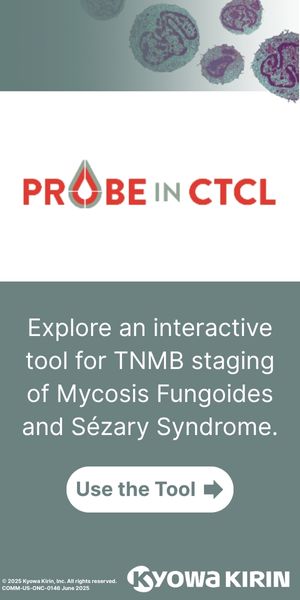Tiffany Graham Charkosky, author and patient with Lynch syndrome, discusses her experience with genetic testing and her book LIVING PROOF: How Love Defied Genetic Legacy.
Lynch syndrome is a rare inherited condition characterized by increased risk for colorectal, endometrial, and several other types of cancers. It is caused by mutation in one of five different genes: MLH1, MSH2, MSH6, PMS2, or EPCAM. Patients with Lynch syndrome are more likely to develop cancer before 50 years of age.
Tiffany was 11 years old when she lost her mother to hereditary colon cancer. Almost 20 years later, her uncle was battling the same cancer and underwent genetic testing that showed a mutation in his MSH6 gene, leading to a diagnosis of Lynch syndrome. This prompted Tiffany to also undergo genetic testing where she was also diagnosed with Lynch syndrome.
Tiffany explains the fear she felt before deciding to pursue genetic testing, noting that she knew the worst case scenario and could not fathom going through what she watched her mother and uncle experience. However, after receiving her diagnosis and having access to support and resources from her care team, Tiffany feels hopeful about the future management of Lynch syndrome and works hard to maintain her health. She highlights the importance of healthcare practitioners considering mental health and the emotional side to genetic testing and diagnosis in their practice.
Her advice to new patients is to feel your feelings and let yourself be human. Shortly after her diagnosis, Tiffany explains how she rushed into making decisions that were based in fear. She wishes she had given herself more grace and time to decide on certain things, given that she was not currently sick with cancer. She also wants others to know that their diagnosis does not change who they are as a person and that they shouldn’t feel shame or guilt.
Tiffany’s current management includes routine screenings with colonoscopies, endoscopies, and, eventually, pancreatic screening. She has also had a few surgeries including a hysterectomy and the removal of her cervix, fallopian tubes, and ovaries. In addition, she gets regular dermatology checks, urine tests, and bloodwork.
Tiffany has also been involved in a phase 2b cancer vaccine clinical trial looking to evaluate the effects and outcomes in patients with Lynch syndrome compared to standard screening. The trial involves four doses of a mix of three substances found in cancers over the course of a year. Her cohort is active and includes 150 patients randomized to the vaccine or placebo. Testing is currently being done to see if it will move into a phase 3 study.
Tiffany’s goal with her book, Living Proof: How Love Defied Genetic Legacy, was to write what she wished she could have read when going through genetic testing and her diagnosis. The book takes the reader through the journey of diagnosis and reflects on how her journey brought up feelings from watching her mom battle the same disease, giving insight into why she felt how she felt and the decisions that she made. She hopes that the book not only gives insight into Lynch syndrome, but also illustrates how one can feel connected to those who came before and how to live a meaningful life even if it isn’t in the genes you wish you were born with.
To learn more about Tiffany’s story and her book, visit https://tiffanygrahamcharkosky.com/book
To learn more about Lynch syndrome and other rare genetic conditions, visit https://checkrare.com/diseases/congenital-and-genetic-conditions/

